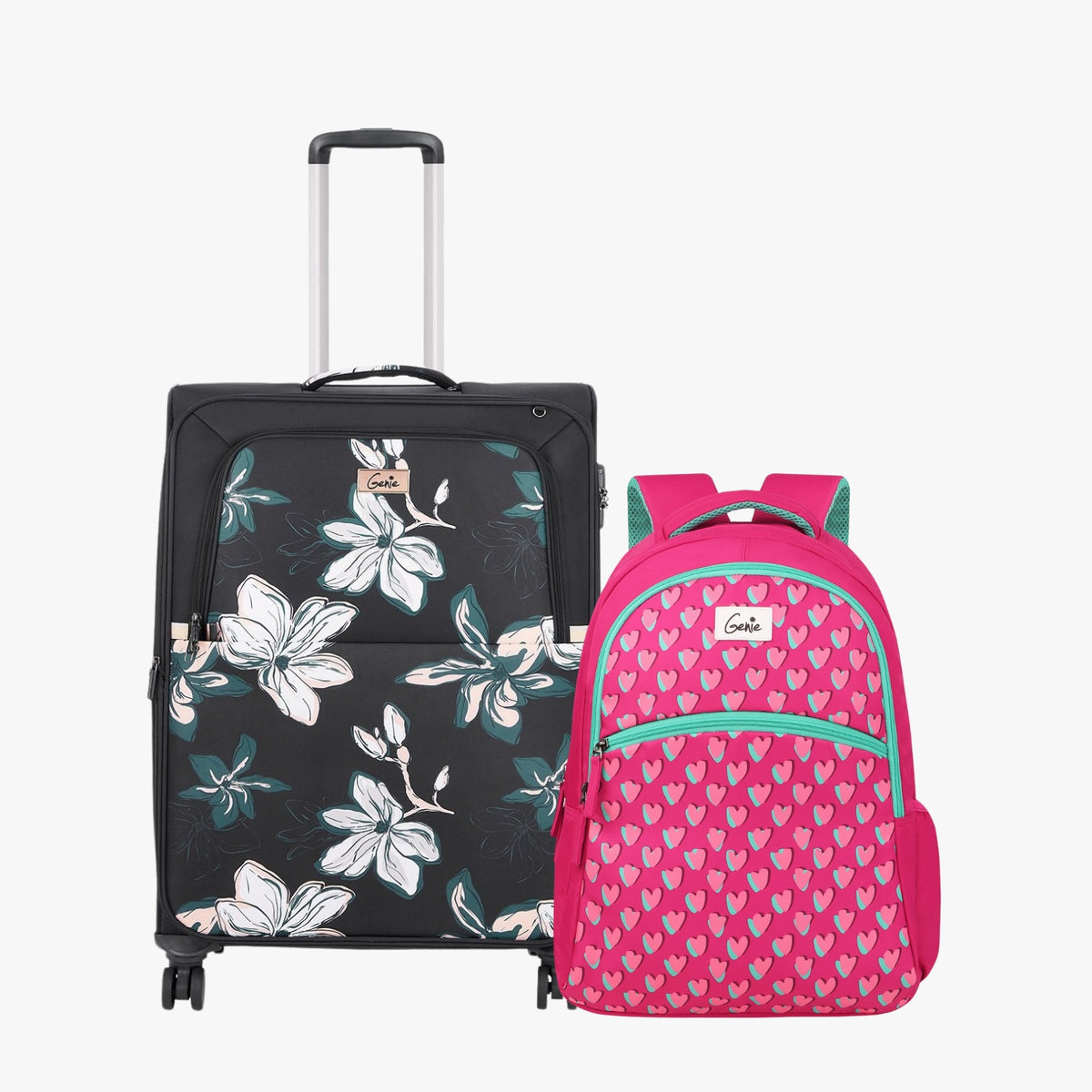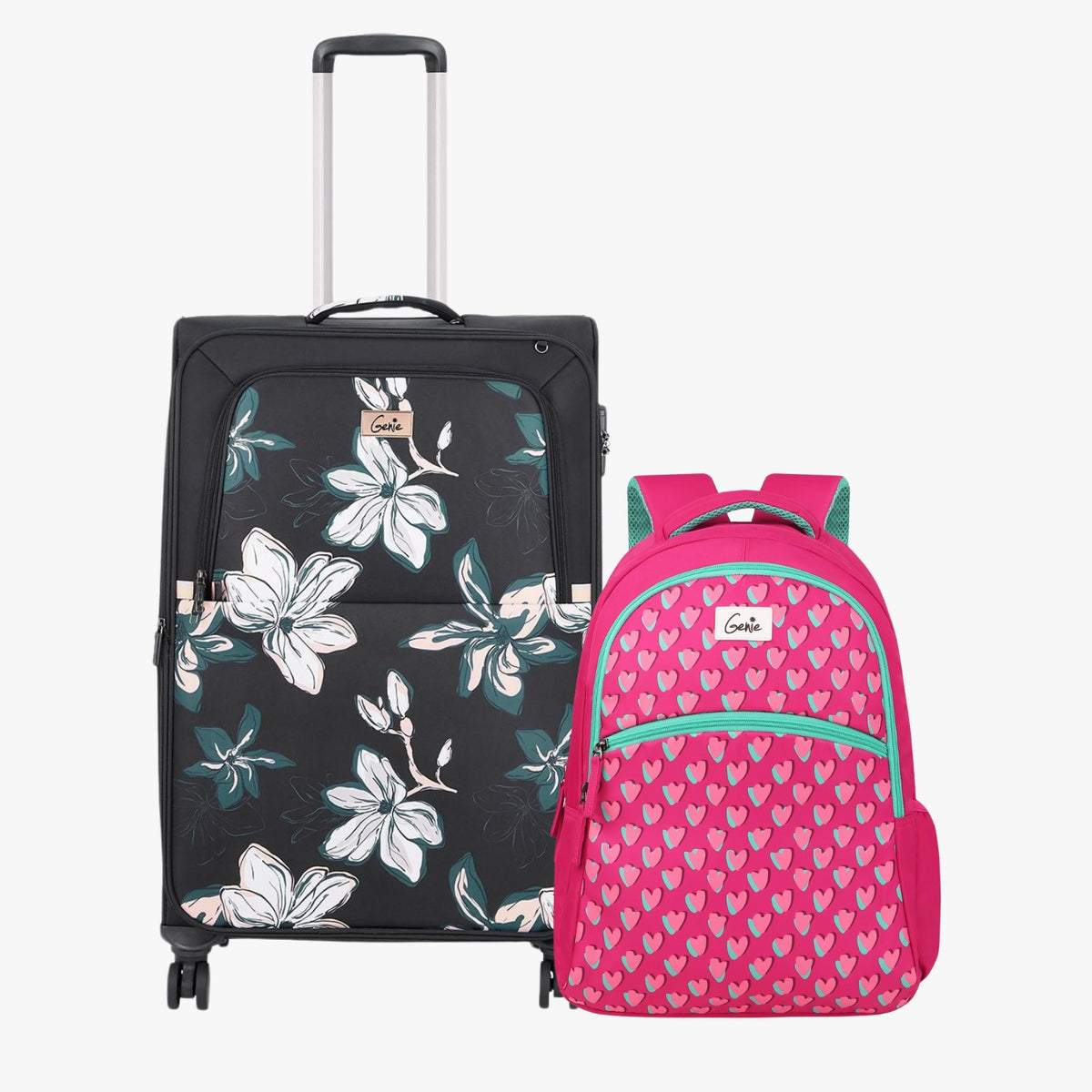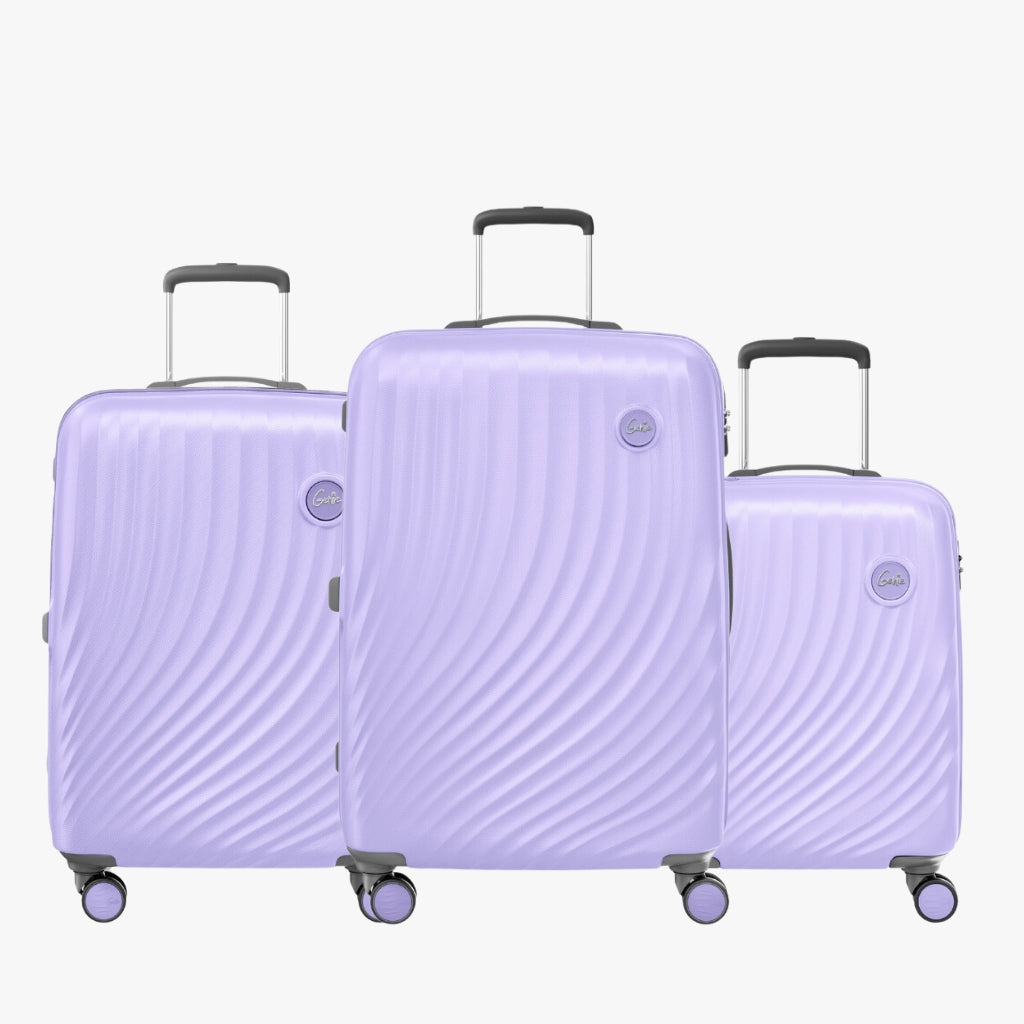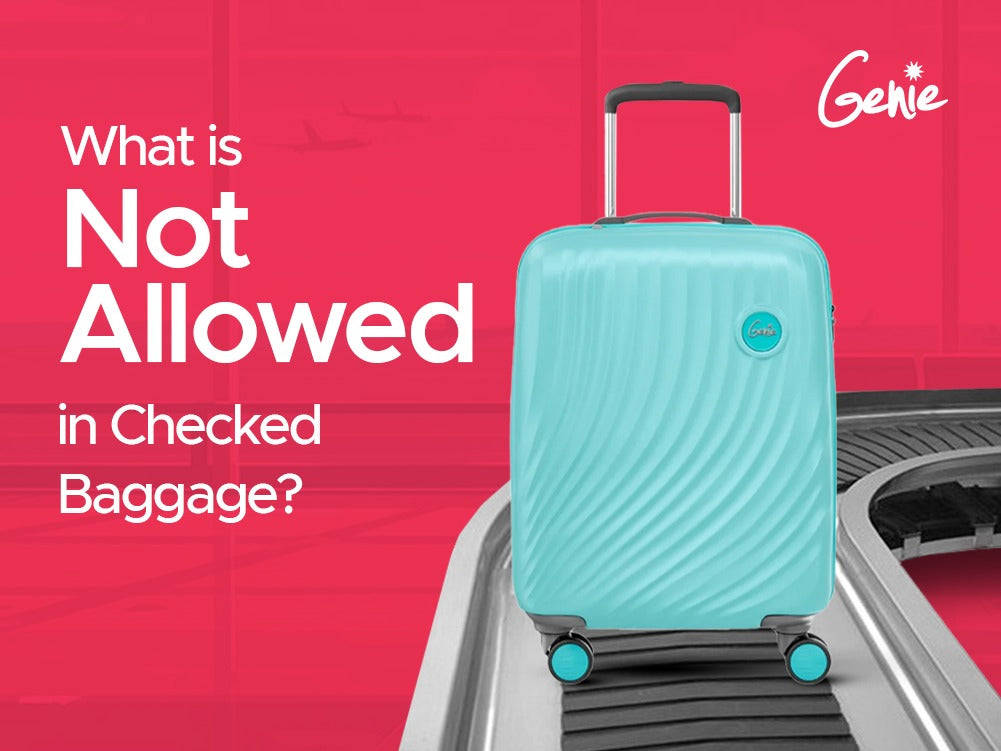Introduction
Traveling with batteries can be a source of confusion for many passengers, prompting the common query: "Can you take batteries on a plane?" Amidst varying regulations and safety concerns, understanding the rules surrounding battery transport is paramount. From AA to AAA, rechargeable to alkaline, the plethora of battery types further complicates matters. This article will explain these regulations and answer your questions to ensure you travel with batteries safely. Clarity on aviation safety and security regulations is crucial to safeguard passengers and aircraft alike. Navigating these guidelines with Genie’s selection of trolley bags for women, ensures a smoother travel experience and promotes the responsible handling of battery-powered devices during air travel.
Can You Take Batteries on a Plane?
Yes, you can bring batteries on a plane but it's essential to understand the guidelines regarding the transportation of batteries and battery-powered devices on airplanes.
Batteries
- Spare batteries: Must be carried in carry-on baggage or backpacks only so as to protect terminals to prevent short circuits.
- Lithium batteries: There is a limit to a certain watt-hour (Wh) rating for lithium-ion or lithium metal content for lithium metal batteries. Always check specific airline restrictions for the same.
Battery-Powered Devices/Toys
- Small devices (phones, laptops, cameras): Generally allowed in both checked and carry-on baggage. But these must be turned off and protected from accidental activation.
- Larger devices: For larger devices, check airline-specific rules, as restrictions may apply based on size and battery type.
Battery-Powered Wheelchairs and Mobility Aids
- Advance notice: Inform the airline at least 48 hours in advance.
- Battery removal: Some airlines may require the removal and secure packaging of the battery.
- Type-specific regulations: Dry, spillable, and lithium-ion batteries have distinct handling requirements. You should check with your airline for detailed procedures.
Additional Information
- Power banks and chargers: These are treated as spare batteries; carry them in hand baggage.
- Electronic cigarettes: Usually restricted to carry-on baggage only.
- Smart luggage: Ensure that the battery can be removed if carrying in checked baggage.
Important Note: Check with the specific airline for any additional guidelines or restrictions, as policies may vary. Be aware that regulations may change over time, so it's essential to consult the official webpage of the airline before traveling for the most up-to-date information.
Practical Tips for Packing and Carrying Batteries Safely on Airplanes
Safely packing and carrying batteries is crucial for a smooth journey. Here are some practical tips to ensure compliance with airline regulations and TSA guidelines.
- Check the latest airline and TSA (or equivalent authority) guidelines before packing to ensure compliance with current regulations.
- Keep spare batteries in their original retail packaging whenever possible to prevent accidental activation.
- Use tape to cover the terminals of loose batteries to prevent contact with metal objects or other batteries. Store loose batteries in individual plastic cases or protective pouches.
- Carry batteries in your carry-on luggage as most airlines prohibit batteries in checked baggage due to safety concerns.
- Be mindful of limits on the number of batteries you can carry to avoid exceeding restrictions.
- For larger lithium-ion battery packs, like those used in cameras and laptops, ensure they do not exceed the airline's watt-hour limit.
- Electronic devices with batteries should be turned off (not just in sleep mode) and protected from accidental activation when packed in your carry-on.
- To expedite security clearance, inform security personnel that you are carrying batteries, especially if they are removed from their devices.
Frequently Asked Questions
Can you take AA batteries on a plane?
- Yes, you can typically take AA batteries on a plane. It's recommended to carry them in your carry-on luggage rather than checked baggage, and ensure they are properly insulated to prevent short circuits. However, it's always best to check with your airline and review TSA guidelines before your flight, as regulations may vary.
What type of battery is not allowed on airplanes?
- Lithium metal batteries with more than 2 grams of lithium content are generally not allowed on airplanes as they pose a fire hazard. This includes non-rechargeable lithium batteries such as lithium metal, lithium-ion, and lithium polymer batteries. It's important to check with your airline and review TSA guidelines for specific regulations before traveling.
Are batteries OK in hand luggage?
- Yes, batteries are generally allowed in hand luggage. It's recommended to carry them in your carry-on rather than checked baggage, and hard luggage as opposed to soft, to comply with airline regulations. However, it's important to ensure they are properly insulated and follow TSA guidelines to prevent any safety hazards.
How do you carry batteries on a plane?
- When carrying batteries on a plane, it's best to keep them in your carry-on luggage rather than checked baggage. Ensure they are properly insulated to prevent short circuits, and consider storing them in their original packaging or a separate plastic bag. Additionally, tape over the battery terminals to further reduce the risk of accidental activation.

 Pink Trolley Bags
Pink Trolley Bags Black Trolley Bags
Black Trolley Bags Purple Trolley Bags
Purple Trolley Bags Pink Backpacks
Pink Backpacks Purple Backpacks
Purple Backpacks Black Backpacks
Black Backpacks Blue Backpacks
Blue Backpacks Multicolored Backpacks
Multicolored Backpacks  Unicorn Bags For Girls
Unicorn Bags For Girls 











